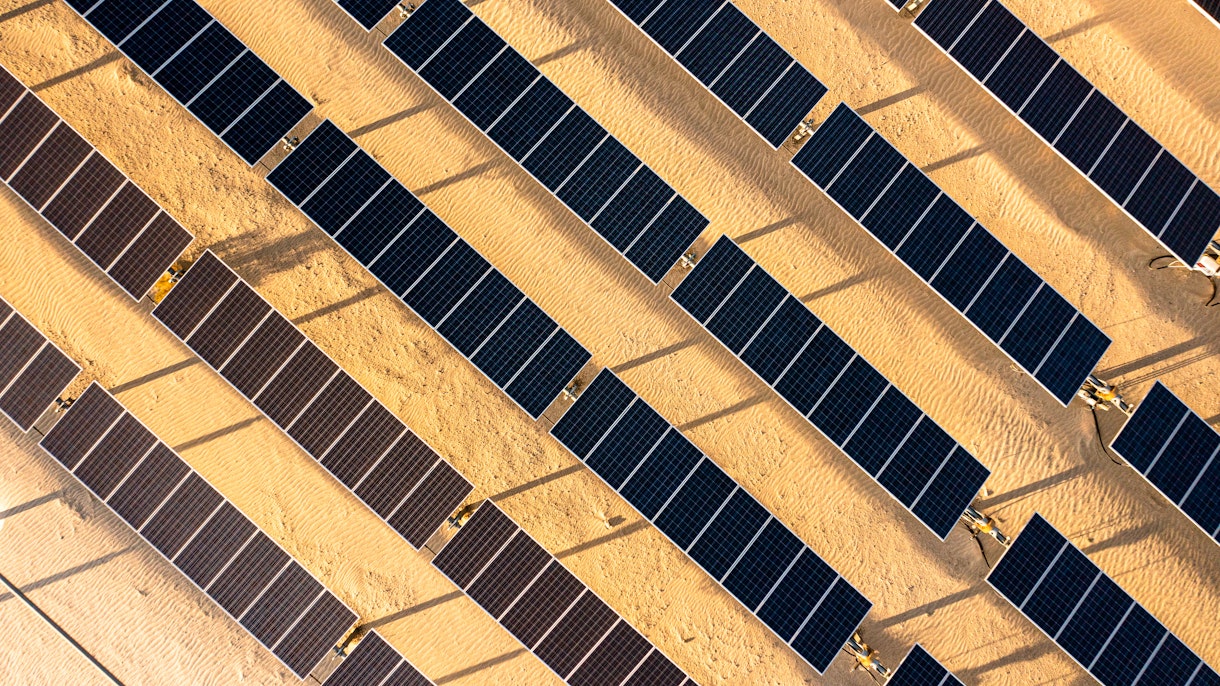Development of Mauritania’s high-quality renewable resources could catalyse the country’s efforts to boost sustainable economic growth
News

Renewable Energy Opportunities for Mauritania, the first IEA report with an exclusive focus on the country, finds strong potential for accelerating sustainable development through clean energy investments
The sustainable development of Mauritania’s high-quality wind and solar resources could serve as a catalyst for the country to achieve its vision of strong and inclusive economic growth, according to a new IEA report published today.
Renewable Energy Opportunities for Mauritania finds that the country could deploy these resources at scale to generate low-cost renewable electricity and hydrogen through electrolysis. This could kickstart the transformation of Mauritania’s energy sector, helping to close gaps in access to electricity and deliver strong economic and social benefits to the Mauritanian people. However, much more investment is needed, as is increased cooperation between both domestic and international stakeholders.
The new report was launched during an event at the MSGBC Oil, Gas & Power 2023 regional conference in Nouakchott, with remarks from IEA Africa Programme Officer Rita Madeira and Lehbib Khroumbaly, Advisor to the Minister of Petroleum, Mines and Energy of the Islamic Republic of Mauritania. The analysis – which outlines possible pathways for Mauritania to develop its renewable energy resources at scale – was carried out in collaboration with the Mauritanian Ministry of Petroleum, Mines and Energy.
“Mauritania has significant opportunities to tap its renewable energy resources and accelerate its sustainable development journey in line with the government’s policy priorities,” said IEA Africa Programme Officer Rita Madeira. “Leveraging these resources will require widespread coordination and collaboration, as well as a robust legal and regulatory framework. We hope this new report and its analysis can spur additional policy support and investment so that Mauritania can access its full energy and economic potential.”
"We would like to thank the IEA for this valuable piece of analysis, which explores Mauritania’s major renewable energy potential and helps put the country on the map for clean hydrogen production,” said Lehbib Khroumbaly, Advisor to the Minister of Petroleum, Energy and Mines of Mauritania. “We are delighted to see that national policy is aligned with the insights of the report and look forward to further collaboration with the IEA."
The report’s analysis finds that expanding renewable generation capacity in Mauritania could improve the sustainability of mining operations, which currently represent close to a quarter of the country’s GDP. These operations are energy-intensive, and mines currently rely predominantly on fossil fuels for their electricity supply. Deploying solar PV and wind power plants could directly reduce the amount of diesel and heavy fuel oil that needs to be imported to power generators. A switch to renewables would therefore improve energy security and reduce emissions, while also potentially lowering the sector’s costs.
Mauritania currently has the largest pipeline of renewable hydrogen projects to 2030 in sub-Saharan Africa. However, successfully implementing these projects is conditional on attracting sufficient investment, which in turn depends on reducing risk by securing demand from foreign offtakers. Building out Mauritania’s renewable hydrogen sector could significantly accelerate sustainable development and growth in the country if inflows of foreign currency and technological capacity are channelled towards infrastructure, skills transfer and adding value to the national economy, according to the report.
The report outlines three possible pathways for Mauritania to export renewable hydrogen: shipping hydrogen to global markets in the form of ammonia; coupling existing iron ore mining with renewable hydrogen to produce higher-value direct reduced iron for export; and transporting hydrogen to Europe through a pipeline connecting Mauritania to Spain.
For Mauritania to pursue these pathways, unprecedented cooperation is needed between government agencies, donors, private partners and development institutions, according to the report. Strong commitment from the donor and development community will be key to these efforts, while private sector capital and expertise will be instrumental to move from concept to implementation.